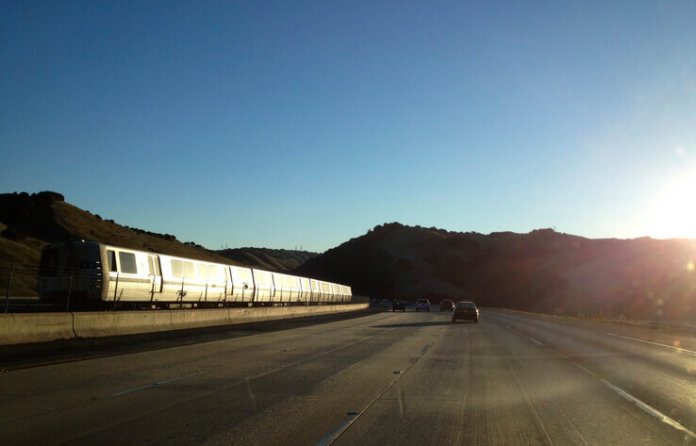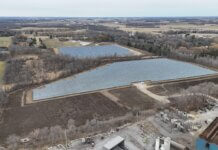Bay Area Rapid Transit (BART), the public transportation system of the San Francisco Bay Area, is moving forward on plans to source the majority of its electricity supply from renewable energy.
On Thursday, BART’s board of directors approved two 20-year power purchase agreements (PPAs) for wind and solar projects. One of the agreements calls for NextEra Energy Resources to build the 61.7 MW Sky River wind facility, and the other calls for Recurrent Energy, a subsidiary of Canadian Solar, to build the 45 MW Gaskell West 2 solar project. Both located in Kern County, the projects are expected to be online by Jan. 1, 2021.
The two agreements build on the Wholesale Electricity Portfolio Policy approved by the BART board in April. That policy calls on BART to procure at least 50% of its electricity from renewable sources by 2025. The new agreements mean BART is well ahead of that goal; ultimately, BART plans to get 100% of its electricity from renewable sources by 2045.
BART, using about 400,000 MWh of electricity every year, says it currently gets 4% of its electricity supply from renewable sources; however, under the new agreements, renewable energy will account for about 90% of its electricity portfolio starting in 2021. As BART’s energy needs increase, though, the new agreements will provide about 75% of BART’s electricity needs beginning in 2025 and for the remainder of the 20-year terms.
Nick Josefowitz, director of BART District 8, notes, “The new agreements would not be possible without California Senate Bill 502, which was authored by then San Francisco State Senator Mark Leno and approved by the state legislature in 2015. That bill allows BART to directly procure renewable energy sources.”
“BART received a robust set of competitive bids in response to the request for proposals that was issued in May 2017,” adds BART’s sustainability director, Holly Gordon. “The price per kilowatt-hour that BART will pay when the projects begin operating in 2021 is lower than what BART currently pays for energy. That low price will be locked in for 20 years, resulting in significant cost-savings for BART over the long term.”




